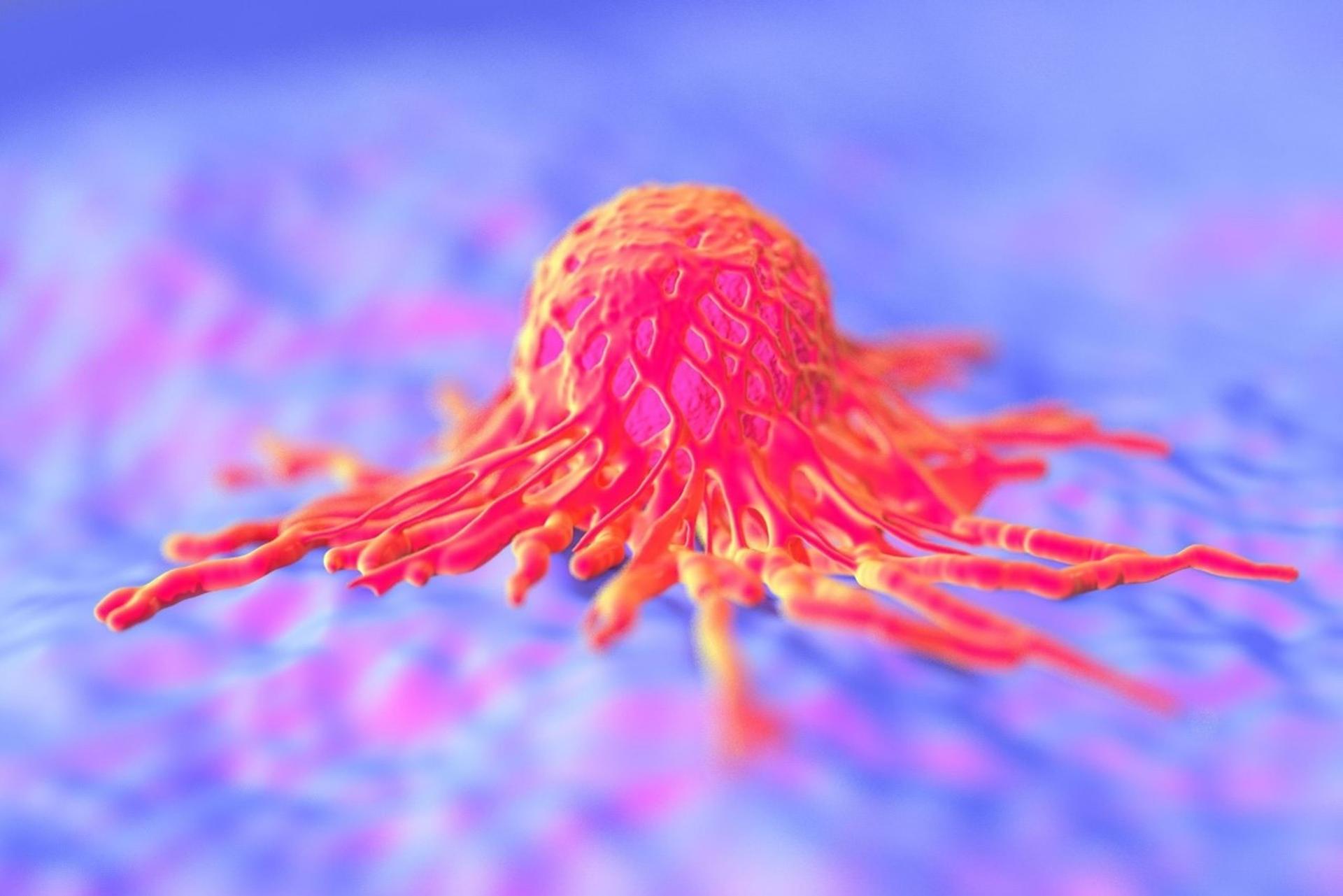Harness antibody biomarkers in cancer research
Learn why antibodies are excellent clinical biomarkers – and the key technology you need to profile them
17 Jun 2024
Dr. Janique Peyper, Immunologist and Senior Bioinformatician at Sengenics
Biomarkers are indispensable for diagnosing diseases, monitoring patients, and developing therapeutic solutions. However, developing a biomarker signature with high sensitivity and specificity poses significant challenges, especially in heterogeneous diseases like cancer. Historically linked with autoimmune disorders, antibodies are now recognized for their capacity to reveal new insights and serve as biomarkers in various diseases, including cancer. They can function protectively or pathogenically, targeting not only exogeneous molecules but also the body’s own proteins. Dr. Janique Peyper, a systems immunologist and senior bioinformatician at Sengenics, discusses the hidden promise of antibodies in oncology and the technologies needed to profile them effectively.
Deciphering complex diseases
Peyper’s fascination with immunology began during her medical training, where she frequently encountered patients with immune-related disorders. Seeing firsthand the immune system’s relevance across all states of health and pathology, Peyper ultimately obtained a PhD in systems immunology. She points out, “The immune system inherently knows what's normal for each person and reports on what isn’t. We can harness this immune response – particularly through antibodies – to gain valuable insights into the disease process, including its location, nature, and timing.”
Antibodies possess several characteristics of ideal biomarkers: stability, accessibility, and detectability, among others. “Another advantage of antibodies as biomarkers is that only a select few disease-associated changes elicit their production,” explains Peyper. “This specificity makes it easy to infer what is happening at the molecular level during disease, including potential causes, from just a drop of blood.”
In comparison, traditional protein-based or genomic biomarkers may reflect changes going on in the body that don’t necessarily correlate with health status. “Crucially, antibodies can usually be detected many years before clinical symptoms of disease,” she adds.

Biomarker testing is an effective way to identify genes, proteins, and other substances that can provide vital information regarding the presence of cancer
From vaccination to treatment
“Cancer is closely associated with changes in the profile of antibodies called ‘autoantibodies’ that target self-proteins,” Peyper states. Cancer can elicit autoantibody production in several ways, often by generating new binding sites on proteins called neoepitopes that appear unfamiliar to the immune system. These protein alterations occur when normal cells transform to malignant ones or when cancer cells evolve rapidly under immune or therapeutic pressures in established tumors.
Chemotherapy and radiotherapy induce massive cell death, releasing tumor-associated proteins targeted by antibodies. Next-generation cancer therapies that stimulate the immune system, such as immune checkpoint-inhibitors (ICIs), also frequently increase autoantibody levels. Anti-drug antibodies can be produced in response to any biologic drug, reducing their efficacy. Notably, immune-related adverse events (irAEs) can occur when the anti-drug antibodies target biologically functional molecules.
Antibodies also play a significant role in rational cancer vaccine development. For example, the HER-2/neu peptide vaccine elicits autoantibodies that target endogenous HER-2/neu. However, through a process called epitope spreading, immunoreactivity can spread to the p53 protein – the most mutated protein in cancer – as well.
“In cancer treatment, epitope spreading can control tumor growth and improve therapeutic efficacy through immune-targeted diversification,” Peyper explains. “In other words, an intervention doesn’t need to target every antigen; it just needs to provide the spark to ignite the immune response.”
Antibody profiling is also critical in identifying targetable antigens for the development of vaccines, chimeric antigen receptor T-cell (CAR-T) therapy, and antibody-drug conjugates. Moreover, it aids in identifying B-cell specificities for chimeric autoantibody receptor (CAAR)-T therapy, which can be useful in the setting of cancer irAEs or paraneoplastic disease.
Antibody biomarker profiling
Classical antibody profiling methods, such as western blotting and ELISA, are typically low-multiplex and low-throughput. In contrast, newer techniques like protein antigen microarrays offer a rapid, cost-effective approach to screen hundreds to thousands of antibodies simultaneously, yielding more comprehensive insights. These arrays come in various formats.
“Screening antibodies with just any protein microarray doesn’t necessarily guarantee high-quality data,” Peyper stresses.
Given that approximately 90% of in vivo antibodies target three-dimensional epitopes, it is critical that array proteins are correctly folded to preserve these conformational epitopes for accurate antibody interaction and binding. Protein folding relies heavily on factors such as the expression system used, which must be capable of replicating human-like folding and post-translational modifications that also affect antibody binding. Additionally, the array surface must maintain the integrity of conformational epitopes, as many surfaces can denature proteins.
Peyper notes, “Incorrectly folded or denatured proteins don’t just result in the loss of biologically relevant data. They can also result in non-specific binding and inaccurate results.”
Other key considerations include the technical sensitivity, linear range, and reproducibility of the assay. The ability to measure more than one antibody isotype or subclass simultaneously is also beneficial, providing a fuller picture of the disease. Employing a statistically powered experimental design and using the appropriate analysis tools are essential to achieve accurate results that are biologically meaningful.
When optimizing research budgets, Peyper suggests, “Only certain proteins are inherently antigenic and capable of eliciting autoantibody production. Focus on how many of these antigenic proteins are covered by the array instead of the total number of proteins.”
Sengenics, an academic spinout from Cambridge University, has developed proprietary KREX® technology for precise antibody discovery and profiling. This unique technology ensures that autoantibodies are profiled against correctly folded, full-length, and functional human proteins. Sengenics offers custom protein arrays and ready-to-use panels encompassing over 1800 carefully selected proteins, along with comprehensive bioinformatics services.
By integrating KREX with their cutting-edge bioinformatics, Sengenics can identify disease-specific autoantibody signatures with high predictive value, driving translational and diagnostic research.
Antibody profiling in multiomics
The inherent variability in many complex diseases, including cancer, poses significant challenges across all aspects of healthcare, from risk management to diagnosis and treatment. Antibody profiling offers answers to some of these challenges by providing data that is highly complementary to other omics approaches. For example, a recent study by Harris et al. demonstrated that combining flow cytometry and autoantibody data achieved 91% sensitivity and 91% specificity in identifying a range of pediatric autoimmune disorders.
Looking to the future, Dr. Peyper is optimistic about the role of autoantibodies in the field of oncology. “Autoantibody profiling is a crucial component of the precision medicine toolkit, capable of delivering actionable insights to aid decision-making in both patient care and therapeutic development.”
References
Harris, E. M., Chamseddine, S., Chu, A., et al. (2024). Integrating circulating T follicular memory cells and autoantibody repertoires for characterization of autoimmune disorders. medRxiv: the preprint server for health sciences, 2024.02.25.24303331. https://doi.org/10.1101/2024.02.25.24303331
